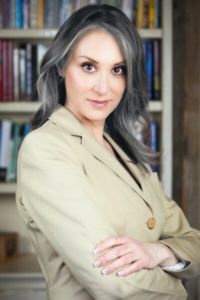The (So-Called) New York “Thought Criminals” & the “Intellectual Dark Web”
Posted By Alex Graham On In North American New Right | Comments Disabled1,399 words
Every few months or so, a mainstream news outlet rolls out another puff piece on “national conservatism [2],” Curtis Yarvin [3] and Neoreaction, the “Dimes Square [4]” scene, or the so-called “Intellectual Dark Web [5]” (IDW). These subcultures have little in common apart from the fact that they are all vaguely Right-wing movements that evade the topic of race — and the media are keen to platform alternative political subcultures that do not address demographic displacement. Last year, Vanity Fair published a lengthy article [6] on America’s “New Right” that discussed a range of Dissident Right figures and trends, but did not make a single mention of Counter-Currents or White Nationalism.
The latest entry in this genre is an unintentionally hilarious and cringe-inducing article [7] in the New Yorker about a group of IDW-adjacent gadflies who refer to themselves as “Thought Criminals.” The “Thought Criminals” count among them several academics, writers, and media figures who have supposedly been “canceled” for their “unpopular opinions” (“cancellation,” according to them, encompasses merely “[feeling] persecuted”). They are “mostly white,” we are told, but about half of the individuals mentioned in the article are Jewish.
The “Thought Criminals” are highly connected and lavishly funded. Their meeting locations have included a cruise on the East River and a mansion on the Upper West Side where they spoke with financiers and people in the arts. They recently met at the newly-purchased home of fired Princeton Professor Joshua Katz and his wife, Solveig Gold, in Georgetown, where real estate is more expensive than in 95% of neighborhoods in the entire country. Clearly Katz is doing quite well for himself despite his “canceled” status. (We are told that the guests at the Katz/Gold residence sang folk songs as someone played the guitar. They’re just like us!)
Katz is the only attendee mentioned in the article who can plausibly claim to have been truly “canceled.” He was fired [8] from Princeton last year for having described a black student group as “a small local terrorist organization.” He was quickly scooped up by Conservative, Inc., however, and became a senior fellow at the American Enterprise Institute and a member of the University of Austin’s board of advisors. The day after he was fired, the Wall Street Journal published an article [9] by him about the ordeal. Katz has remained comfortably situated within the mainstream and has thrived despite the condemnation he has received in academic circles.
Among the other “canceled” attendees listed are a gay man who claims that “cisgender” is a slur and that trans activists are “homophobic,” and a comedian who has made parody videos of transgender TikTok personality Dylan Mulvaney. Some real heavyweights here.
You can probably guess what the attendees’ “unpopular opinions” are. As soon as I saw the article’s headline, I had a hunch that the transgender debate would take center stage. Sure enough, it was the main topic of conversation at the gathering attended by the reporter. Contrarians flock to transgender issues because criticizing the transgender movement allows them to be edgy while remaining within the Overton window. Churning out “hot takes” on hot-button issues also garners them attention and notoriety. They inevitably stick to regurgitating banal, warmed-over opinions about women’s sports or puberty blockers, and almost never engage with the philosophy of gender or examine the Jewish role [10] in the transgender industry. (In fairness, one of the attendees was a detransitioner, but most outspoken critics of the transgender movement appear to be informed more by clout-chasing contrarianism than personal experience.)
Do these people actually care all that much about women’s sports? Probably not — with the exception of Kim Jones, the mother of a collegiate swimmer who lost to Lia Thomas in a swimming competition, and who was present at the gathering in question. Tellingly, Jones does not see herself as a “Thought Criminal” and points out that the vast majority of people share her views. She is not against the inclusion of transgender women in women’s sports to make a political statement; she simply cares about her daughter. By contrast, Gold — who was the subject of a nauseatingly flattering profile [11] in the New York Times despite being a grad student who has not accomplished anything of note — admits that she joined the Republican Party “mostly to be different.”
Self-styled contrarians are conspicuously silent on the topic of Jews’ role in destructive societal trends like transgenderism, but they typically pull no punches when it comes to attacking white liberals, their favorite target. White liberals are a convenient scapegoat because hating white people is trendy, hating liberals is edgy (but not beyond the pale), and white liberals are so masochistic that they almost never stand up for themselves. IDW figures such as Jordan Peterson frame white liberals as calculating, Machiavellian virtue-signalers who are responsible for all manner of social ills (so much for the IDW crowd’s emphasis on “nuance”). This is a good example of contrarians’ cowardice and dishonesty. There’s obviously some truth to it, but the fact is that many white liberals are naïve yet well-intentioned people whose altruistic and individualistic impulses have been hijacked.
 [12]
[12]You can buy North American New Right vol. 2 here [13]
There are other examples of this: contrarians’ preferred bogeymen also include things such as “fat positivity” and veganism, since lambasting them is provocative, yet not taboo.
There is no trace of a coherent ideological vision among any of the “Thought Criminals,” nor the majority of their fellow travelers in the IDW — only vague, poorly-articulated grievances. With regard to people such as Bari Weiss or Pamela Paresky, insofar as there is an underlying ideological basis for their opinions at all, it is that the current zeitgeist is insufficiently philo-Semitic. Paresky, the gatherings’ organizer, is a psychologist who runs a Substack blog [14] and has contributed [15] to the Jewish Journal. In her articles [15] for the Jewish Journal, Paresky accuses the New York Times of glossing over Louis Farrakhan’s anti-Semitism and rails against an ethnic studies curriculum that classifies “white” Jews as having “racial privilege.”
Paresky’s resistance to the classification of Jews as “white” echoes a recent article [16] in Tablet — which is linked [17] to on a website entitled National Conservatism run by Yoram Hazony’s Edmund Burke Foundation — that bemoans the fact that Jews’ overrepresentation in American public life has been declining over the past decade due to their perceived whiteness, which puts them at odds with diversity initiatives: “When activists and journalists and executives talk about how Broadway [18] or NPR [19] or publishing [20] is ‘too white,’ what they really mean is ‘too Jewish.’” (Of course, if the author believed “too white” really meant “too white,” it is doubtful he would object.)
It is inevitable that ethnocentric Jews will butt heads with progressives who prioritize blacks and other racial minorities, and will receive backlash from their peers. Such is the nature of societies in which many competing interests are present, as diversity causes strife. Jews grow up being instilled with the mindset that they belong to a hated and persecuted minority, so facing widespread pushback probably touches a nerve for them, particularly if they believe Jewish identity is under threat. It makes sense that this would foster a perception among ethnocentric Jews that they are being “canceled.” But a Jew can publicly advance the claims that Jews are being replaced and that affirmative action is detrimental to Jewish interests without experiencing serious professional repercussions. Meanwhile, any white person who publicly voiced similar concerns about white people would have a hard time finding a job. He certainly would not be profiled favorably in a mainstream publication, nor would he be welcome to dine with the “Thought Criminals.”
It would be interesting if someone were to attend the University of Austin and express White Nationalist viewpoints. It would really put the university’s founding credo to the test. The IDW figures talk a good game about academic freedom and opposing cancel culture, but one wonders whether a White Nationalist student would be tolerated.
Nothing about the “Thought Criminals” is remotely newsworthy. They are merely a group of friends who have monthly dinners. Either the New Yorker is interested in raising their profile and giving them a career boost, or the assumption is that the comings and goings of wayward Jewish elites are somehow a matter of public interest.
It’s safe to say that we will know we have “made it” once the New Yorker or the New York Times publishes a long-form article about the plight of canceled White Nationalists.
* * *
Counter-Currents has extended special privileges to those who donate $120 or more per year.
- First, donor comments will appear immediately instead of waiting in a moderation queue. (People who abuse this privilege will lose it.)
- Second, donors will have immediate access to all Counter-Currents posts. Non-donors will find that one post a day, five posts a week will be behind a “Paywall” and will be available to the general public after 30 days.
- Third, Paywall members have the ability to edit their comments.
- Fourth, Paywall members can “commission” a yearly article from Counter-Currents. Just send a question that you’d like to have discussed to [email protected] [21]. (Obviously, the topics must be suitable to Counter-Currents and its broader project, as well as the interests and expertise of our writers.)
To get full access to all content behind the paywall, sign up here:
Paywall Gift Subscriptions
 [22]If you are already behind the paywall and want to share the benefits, Counter-Currents also offers paywall gift subscriptions. We need just five things from you:
[22]If you are already behind the paywall and want to share the benefits, Counter-Currents also offers paywall gift subscriptions. We need just five things from you:
- your payment
- the recipient’s name
- the recipient’s email address
- your name
- your email address
To register, just fill out this form and we will walk you through the payment and registration process. There are a number of different payment options.
